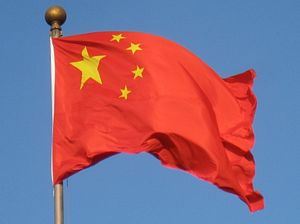On July 31, the Chinese Communist Party (CCP) officially launched a new patriotism campaign specifically for Chinese intellectuals.
According to the notice — issued jointly by the Central Organization Department (which controls staffing positions within the CCP) and the Central Propaganda Department (which controls China’s propaganda machine) — the campaign has the title of “Carrying forward the spirit of patriotic striving and building up establishment in the new era.” Notably, the campaign is targeted only at Chinese intellectuals, particularly those working for the Party, the government, state-owned enterprises, the military, and colleges and universities.
The notice claimed that the campaign was launched under a series of instructions from Chinese President Xi Jinping. Xi has on various occasions said that Chinese intellectuals should “always walk along with the Party and the country,” “go wherever the Party directs,” and contribute “selflessly” to China’s development.
The notice listed five general means to conduct this campaign, including increasing mass propaganda in various media, holding special symposiums to study Xi’s remarks, organizing special trainings mainly for young and middle-aged intellectuals, establishing role models for others to follow, and mobilizing intellectuals to conduct activities in poor and remote areas.
The format of the activities does not need to be uniform with rigid regulations or targets, but those activities should be constant and innovative so that the intellectuals’ “souls can be touched,” the notice said.
Full of propaganda rhetoric, the notice itself didn’t specify why the CCP decided to launch such a campaign at this moment.
Yet the Global Times, one of China’s most pro-government state-run newspapers, explained the CCP’s likely logic by quoting Su Wei, a professor at the Party School of the CCP Chongqing Municipal Committee. Su told the Global Times that “China’s patriotism education has faded in recent years, which has led to many abnormal phenomena.”
Amid U.S.-China trade tensions, rather than supporting their country, many Chinese intellectuals turned against their country on social media, Su added. Some intellectuals even express unrealistic dissatisfaction toward the country.
The so-called “unrealistic dissatisfaction toward the country,” as Su put it, has been long referred to as “inappropriate criticism toward the central authority” by the CCP. In 2015, the CCP even revised its Disciplinary Regulations, claiming that any Party member who “makes inappropriate criticism toward the central authority’s key policies” in various forms will be punished accordingly. For example, Zhou Benshun, former top official of Hebei Province from 2013 to 2015, was expelled from the Party for “inappropriate criticism” together with other misconduct.
Against this background, Chinese intellectuals, particularly those affiliated with state-run organizations, had been extremely careful with their remarks for years.
However, in recent months, as the trade war with United States triggered a series of financial and social risks domestically, an increasing number of Chinese intellectuals are venturing to raise independent voices, including criticism toward the central authority’s policies.
One of the most remarkable examples is Xu Zhangrun, a law professor at Tsinghua University, one of China’s most prominent universities. Xu recently published online an extremely rare and harsh criticism against the top authority’s recent policies. In his article, Xu even touched upon the most sensitive political topic in today’s China — Xi Jinping’s decision to scrap the two-term limit for the presidency in China’s constitution.
In China, it goes without saying that such criticism by an intellectual is highly likely to bring about unimaginable retribution from the government. That’s why Jiang Hao, a researcher at Unirule Institute of Economics, an independent think tank in Beijing, told The New York Times that “Many intellectuals might be thinking the same [as Xu], but they don’t dare speak out.”

































